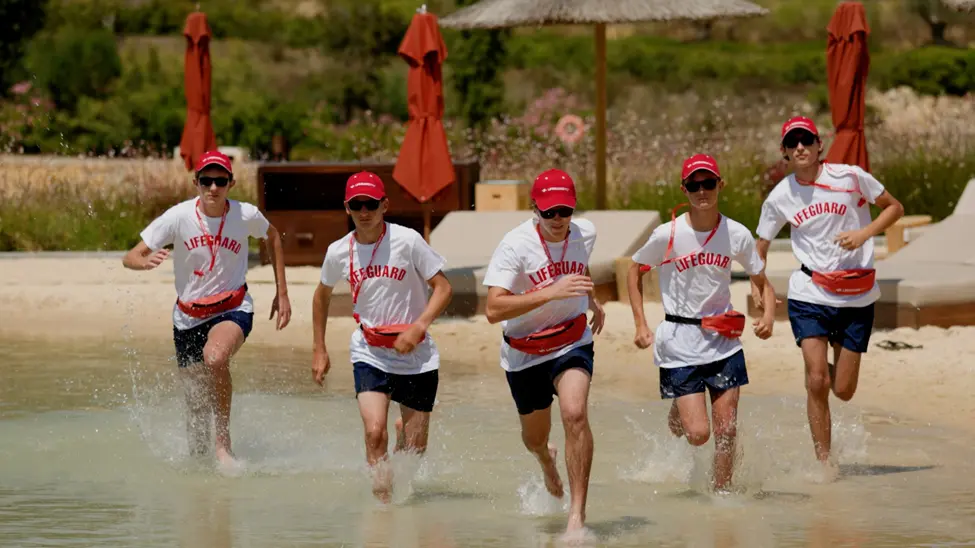Lifeguard Training: A Gateway for Teenagers to Fitness, Skills, and a Rewarding Career
Teens interested in gaining self-confidence, developing leadership skills, and improving their physical health find lifeguard training a highly rewarding path. Going to lifeguard training provides teens with more than a paycheck, and most importantly gives them authority, guidance, and opportunity outside of the beach whether it is a summer job or a career in water safety to develop.
This essay will discuss how teens gain professionally and physically throughout lifeguard training, therefore presenting a holistic analysis of why lifeguarding is more than a summer job. It is a way of life based on responsibility, health, and personal improvement.
Physical advantages of lifeguard for Teens
Teenagers achieve physical fitness from lifeguarding since it is a physically demanding job. The demanding character of the work guarantees that young lifeguards remain active and in shape, therefore it is among the most fitness-focused jobs open to teenagers.
1. Total body conditioning
Lifeguards certainly put many hours into swimming, walking, standing, and practicing swimming drills. All of this adds flexibility, strength, and stamina to their game. These physical vocational tasks develop cardio fitness and muscle endurance, especially in the shoulders, abdomen, and legs, for a long period. Eventually, these physical prerequisites become a strong and healthy body.
2. Improved Cardiovascular Fitness
Once again, swimming, especially for an extended period of time, is a great way of obtaining cardiovascular fitness. As a general rule, while candidate trainees in lifeguard training are in the pool for an extended period of time they are practicing strenuous swimming. It has been determined that this type of activity only helps in pumping blood, using lung capacity, and strengthening the heart.
3. Lifelong Patterns of Fitness
The focus and effort it takes to maintain lifeguard status encourage youth to develop lifelong fitness habits. Moreover, knowing that they are responsible for others’ safety, young lifeguards want to maintain their top physical condition for safety purposes, and consequently, make fitness a priority, which may carry into adulthood.
Professional and Career Perks
The abilities acquired via lifeguard training go far beyond the beach or swimming pool. Often used as a stepping stone to several professional development options and career paths, lifeguarding helps people reach their full potential.
1. Early Job Background
Many teenagers get their first employment as lifeguards. It instructs fundamental workplace skills: punctuality, communication, responsibility, and teamwork. In any profession, these soft skills are much appreciated and provide lifeguards a professional advantage starting very early.
2. Applications to College and Resume Development
Colleges and employers value applicants who possess lifeguard experience. It illustrates how a student can manage accountability, operate under pressure, and show commitment. Teens may stand out in job interviews and competitive college applications with the aid of their certificate.
3. Health and Safety Career Paths
Teens learn about jobs in health, safety, emergency services, and public administration from lifeguards. Many young lifeguards go on to work as paramedics, firefighters, aquatics facility managers, or even get degrees in public health and sports science.
Social Abilities and Community Impact
Beyond the individual and job advantages, lifeguard links youngsters in significant ways to their neighborhood.
1. Creating Friendships Over a Lifetime
Many times, lifeguard lessons result in close relationships since teenagers practice, train, and cooperate very closely. This friendship offers a nurturing setting for growth and learning while also strengthening their social connections.
2. Working with the Community
Public safety depends much on lifeguards. Teen lifeguards become examples in their neighborhood, motivating younger children and comforting worried parents. Their visible presence promotes responsible conduct in and near the water.
3. Supporting Water Safety
Teenagers frequently turn passionate advocates for good swimming habits as they come to know more about water safety. They are ideally placed to teach their peers and community members about drowning prevention, CPR, and emergency response.
Choices for jobs that are flexible and seasonal
Teenage lifeguards’ flexibility is one of their most enticing features. Many companies run seasonally and offer ideal summer employment for college and high school students.
1. Ease of Scheduling
Usually offering flexible hours, lifeguard positions let teenagers juggle family duties, school, or sports activities. This means it’s a great part-time employment with little confrontation during the academic year.
2. Possibilities for advancement
Many times, teenage lifeguards can grow up to be head lifeguards, instructors, or facility managers. Higher compensation and more accountability that accompany these leadership positions help a teen’s profile and abilities even more.
The National Impact of Lifeguard training
To tackle the situation of lifeguard shortage, one thing is very clear that the promoting lifeguard training is one of the essentials. Closure of local swimming pools and decreased water safety at public beaches nationwide has resulted from this shortage.
Raising awareness about these problems has been spearheaded by the American Lifeguard Association. Often cited in both print and digital media, the group provides professional analysis on how the scarcity impacts public access to secure swimming areas and emphasizes the critical need for more trained lifeguards—especially among teenagers.
Teenagers not only get priceless personal and professional advantages from lifeguard courses but also support a bigger social cause: making sure aquatic areas stay open and safe for all.
Final Word
Lifeguarding goes well beyond just a summer job as the teenagers have a great chance to develop personally, intellectually, and professionally while truly changing their neighborhoods. Teens can unleash a leadership, goal, and wellness future by means of adequate lifeguard training – all while acquiring experience that opens doors to several job opportunities.
As the need for competent lifeguards increases, organizations like the American Lifeguard Association keep pushing for better training criteria and more accessibility to lifeguard certification programs. For teenagers ready to plunge into duty, skill development, and service, lifeguarding is among the most powerful means to start their professional life.
Also Read-How Modern Heart Specialist Hospitals are Reducing Cardiac Emergency Fatalities

